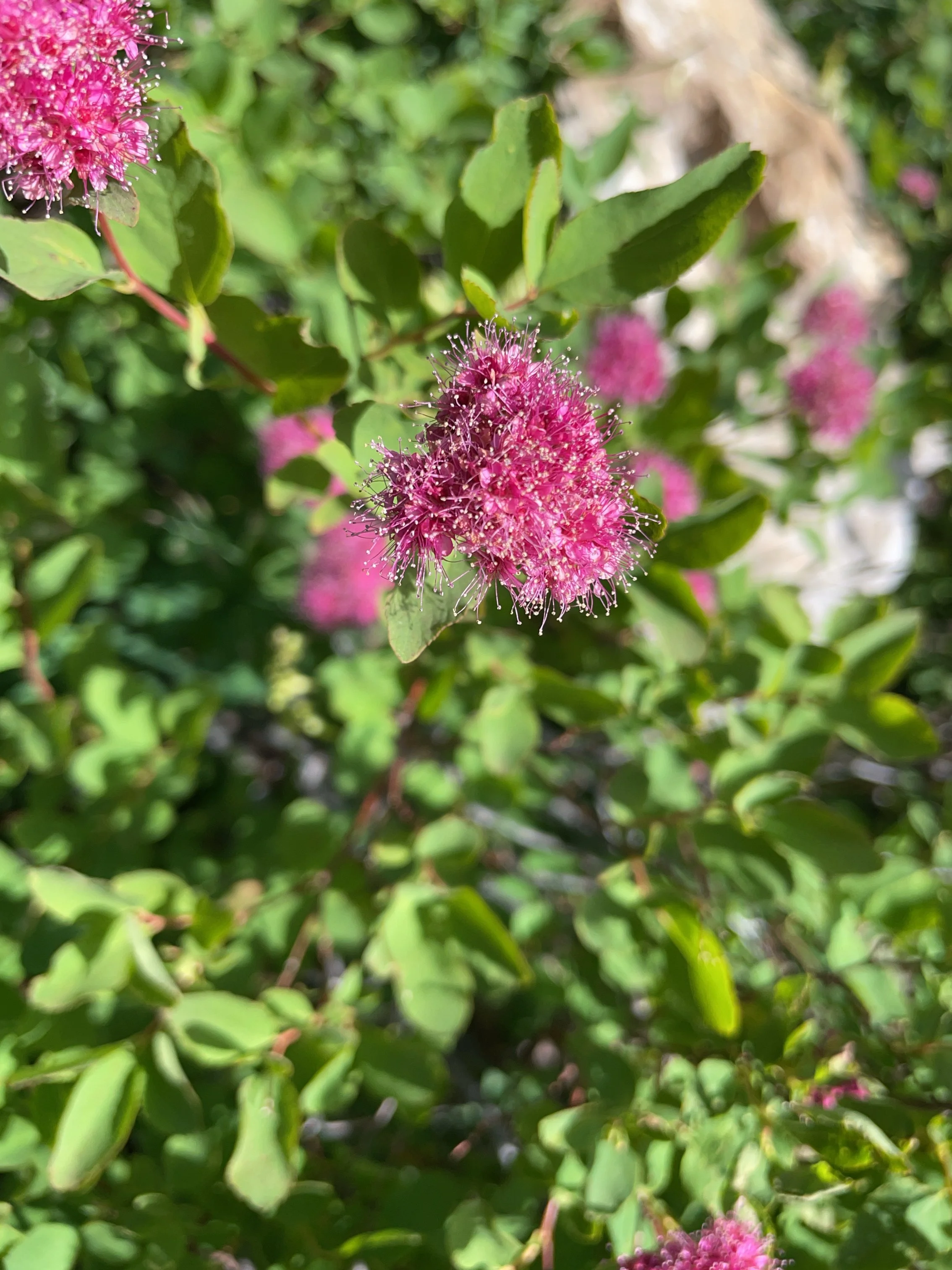What We Can Learn About Resilience From The Mountain Spiraea
The American Psychological Association defines resilience as: “The process and outcome of successfully adapting to difficult or challenging life experiences, especially through mental, emotional, and behavioral flexibility and adjustment to external and internal demands.” Resilience can be so empowering to access when we face really hard things. It also is a word that can be thrown around haphazardly when people are sharing their painful experiences or moving through something difficult. Many people I have worked with have shared that resilience has been given to them as a way to:
Hide their pain - “That is a hard thing but you are so resilient and it will definitely get better!”
Show up as a hero even when they are exhausted or hurting - “Wow, I am so inspired by your resilience”.
Remain in good character standing with others - “You just need to be resilient right now, stay strong.”
Sometimes, it can be so empowering for someone to hear that they are resilient and to be able to recognize their own capacity to overcome challenges. Other times, these frames of resilience can feel like a burden someone needs to carry in order to prove they are strong, working hard enough, or that they still belong with others.
I was recently inspired to learn more about what resilience can look like and mean and how it can be useful by a Mountain Spiraea (other common names: Subalpine Spiraea or Rose Meadowsweet).
Mountain Spiraea are shrubs that grow between 2,000 feet to 11,000 feet and are native in Southwestern British Columbia to California. They prefer full sun and wet soil and can grow in meadows, along streams, in wooded areas, and in rocky soil on mountain slopes. They have special value for native bee species and attract large numbers of pollinators.
The Mountain Spiraea can teach us that:
Resilience does not only look one way.
Mountain Spiraea grow in the woods, in the meadows, on mountain sides. The way that they adapt in each of these settings will look different based on the conditions they are faced with. We also learn to adapt to challenges in a myriad of ways and there is not just one right way. Some people may respond quickly to a challenge and others may need more time. Some people may express more outwardly under stress and others may need more internal time to process.
Resilience does not mean we have to “be strong” and do everything alone.
Learning to adapt to living in rocky soils can be incredibly useful in our lives. But, even in the rocky soils, the Spiraea need full sun. They need support to be able to adapt to the conditions just as we need support to be able to overcome challenges.
Our resilience can create reciprocity in our environments.
The Spiraea are recognized for being a resource for a large variety and large numbers of pollinators. When we are asked to be resilient in our lives, I find it incredible that our journey through whatever challenge we are facing may not only be beneficial for us, but may also have ripple effects that benefit others around us.
I am constantly learning from the rest of the natural world about challenges and questions that we face as human beings. These are just some of my reflections and I would invite you to wonder what you could learn about resilience from any beings that you may come into contact with.
If you are interested in learning more about Eco-therapy and/or in working or consulting with me, please reach out! I would love to hear from you.
References
Resilience. American Psychological Association. (n.d.). https://www.apa.org/topics/resilience
Lady Bird Johnson Wildflower Center - The University of Texas at Austin. (2019). Wildflower.org. https://www.wildflower.org/plants/result.php?id_plant=SPSPS
Spiraea splendens | Landscape Plants | Oregon State University. (2019). Oregonstate.edu. https://landscapeplants.oregonstate.edu/plants/spiraea-splendens

